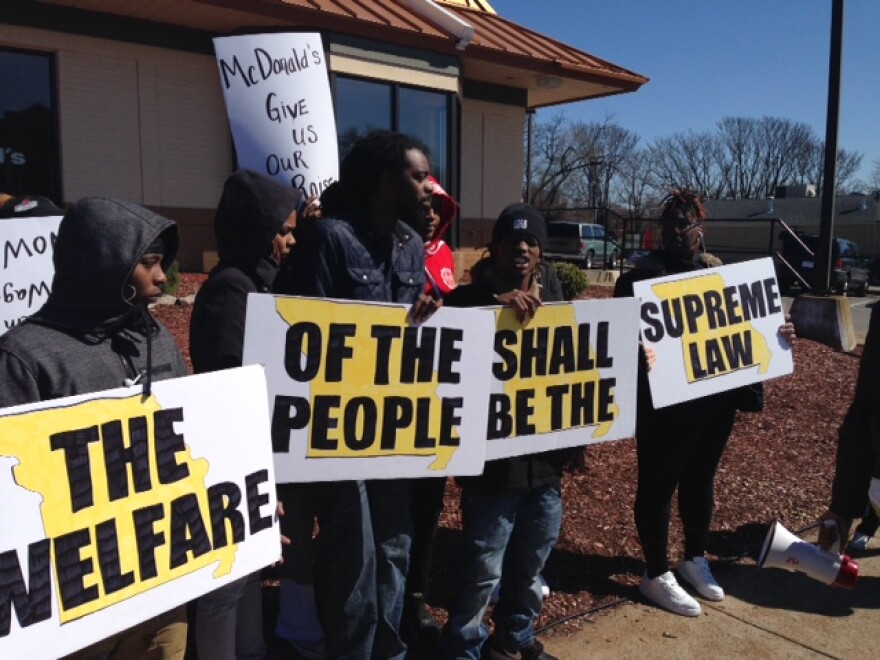Even though the Missouri legislature has passed a bill that essentially blocks the city of St. Louis from raising its minimum wage, economists are weighing in on how the region could be affected by increasing that rate to $10 an hour.
The legislation is awaiting Gov. Eric Greitens signature and St. Louis Federal Reserve Regional Economist Charles Gascon has co-written a research paper in an attempt to examine several questions, including exactly how many city residents would be directly affected by allowing the city's minimum wage to go up.
How many residents would be affected?
Gascon says that number is under 10,000, which is less than other estimates that have been put together. A big reason is the difference between a resident and a worker. There are more non-resident workers in St. Louis than those who live and work in the city. He says adding that element to the formula brings down from the roughly 42,000 people working in the city for less than $10 an hour.
Would $10 have the impact many are hoping for?
Gascon says that depends on the definition of "impact." If people assume the reason for a hike is to help low income residents, then fewer resident workers, compared to those who work in the city but live elsewhere, will feel the effect of a minimum wage hike.
Does raising the minimum wage float all boats?
Gascon says that is an interesting question at the heart of the debate. He says there are many dynamics at play, including the fact that higher wages raises costs for businesses, leading them to possibly hire fewer workers. Gascon says a key point has been determining how many people would feel a direct impact of $10 an hour. He says that is especially important when forming policies in the St. Louis region, because of the government structure and the number of non-resident workers in the city.
How does regional structure complicate the impact of a wage hike?
Gascon says some metropolitan areas in the country have more people who live and work in the city centers. That is not the case in St. Louis, making a wide-ranging policy like a minimum wage hike more difficult to implement. Gascon says the difference between administrative and economic boundaries is a broad issue that needs to be closely examined.
What can we expect from $10 an hour?

It boils down to a basic position - changes in the city's minimum wage will have a significant impact on the rest of the region. He says the issue is similar to recent discussions on public funding for sports stadiums. The debates are going on in the city, but will affect a much larger area considering how many people come into St. Louis for their jobs, entertainment and recreation. Those factors are key dynamics in trying to put together a full assessment of how a minimum wage hike, and other issues, will play out.
Follow Wayne on Twitter: @wayneradio





